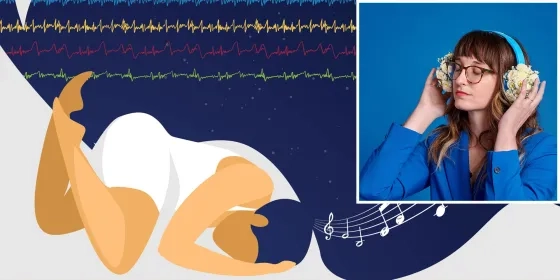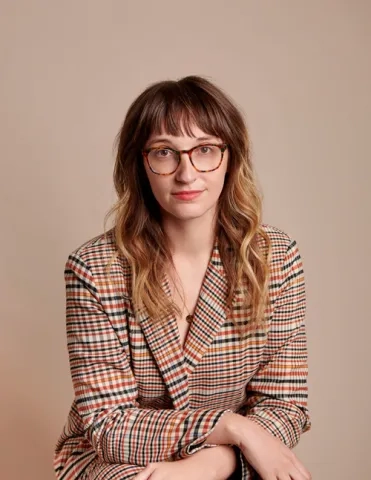Hit Podcast the Nocturnists Talk Music, Dreams, and the Brain at SFCM
The Nocturnists, University of California San Francisco, Global Brain Health Institute, and SFCM unveil 'Sleep and Dreams: Music, Neuroscience and Stories of Slumber' at the Conservatory on October 18.
By Alex Heigl
According to at least one source, the Old English word for "dream" didn't actually refer to a series of images passing through our minds as we sleep: It also meant "music."
It's fitting, then, that SFCM is hosting an event put on in conjunction with the Nocturnists podcast, the University of California San Francisco and the Global Brain Health Institute exploring the very essence of sleep and dreams.
One aspect of the event will be momentous for Nocturnists founder Emily Silverman: "I'm going to be one of the people telling a story, which I've never done before in my six years now with the Nocturnists," she said. "I've never done a story at my own show, but I was convinced to participate in this one as a storyteller!"
"The other storyteller is going to be a medical student based out of Portland, Oregon, who's going to tell a story about a dream that they had that woke them up from sleep and alerted them—they're a type 1 diabetic—that their blood sugar was low, and that's how they realized that," Silverman continued.
While the main focus of the Nocturnists as a podcast is holding space for physicians to tell their stories, there are some episodes in the back catalog that focus specifically on sleep and dreams, Silverman explained.
"We have an episode from our Stories From the Pandemic, Part 2: There's an episode called 'Dreams and Nightmares' in which we put out a call for dreams and nightmares experienced by healthcare workers during COVID, and we got a lot of interesting things. Those dreams were published in a literary magazine called Virginia Quarterly Review along with some really beautiful illustrations, so that particular episode has another life in VQR."
But there are also stories of music in the Nocturnists archives: Silverman points to one from the show's second season entitled "Dying to Tchaikovsky," in which family medicine physician Catherine Sonquist Forest relates her experience of caring for a patient dying of a stroke. The patient, as it turned out, knew the famous violinist Isaac Stern, who came to the hospital and serenaded her with Tchaikovsky as she passed.
As far as the intersection of music and health, Silverman related a story from her own life. "When I was a resident at UCSF, there was a woman dying of Parkinson's who was a classical music lover, and her favorite piece was Gershwin's Rhapsody in Blue. The dementia in this patient had progressed to the point where she wasn't really speaking, but her son had mentioned to me that that was her favorite piece of music …I played the piece to her through my phone and I asked her, 'Do you know what this is?' And she clearly answered me, 'Rhapsody in Blue.' And those were the only words I ever heard her say."
Silverman has also recently been working with a Stanford medical student named Melanie Ambler, who is also a cellist. "During COVID, she started to play virtual concerts for ICU patients, so she would set up her cello in her bedroom and people in the hospital would wheel an iPad into a hospital room and she would talk to the patient and play for them."
"She told a story about this at our last live show," Silverman continued. Apparently, Melanie had been having a bad week, but still showed up ready to play for a patient who was about to be discharged. But after her performance of Bach's Cello Suite No. 1 in G major, the patient, seemingly unimpressed, asked her to "play something from the heart."
Ambler responded by playing another song popularized by Yo-Yo Ma, "Appalachian Waltz," and when she finished, the patient thanked her and said, "That was what I needed."
Learn more about Sleep and Dreams: Music, Neuroscience and Stories of Slumber happening at SFCM on October 18.

